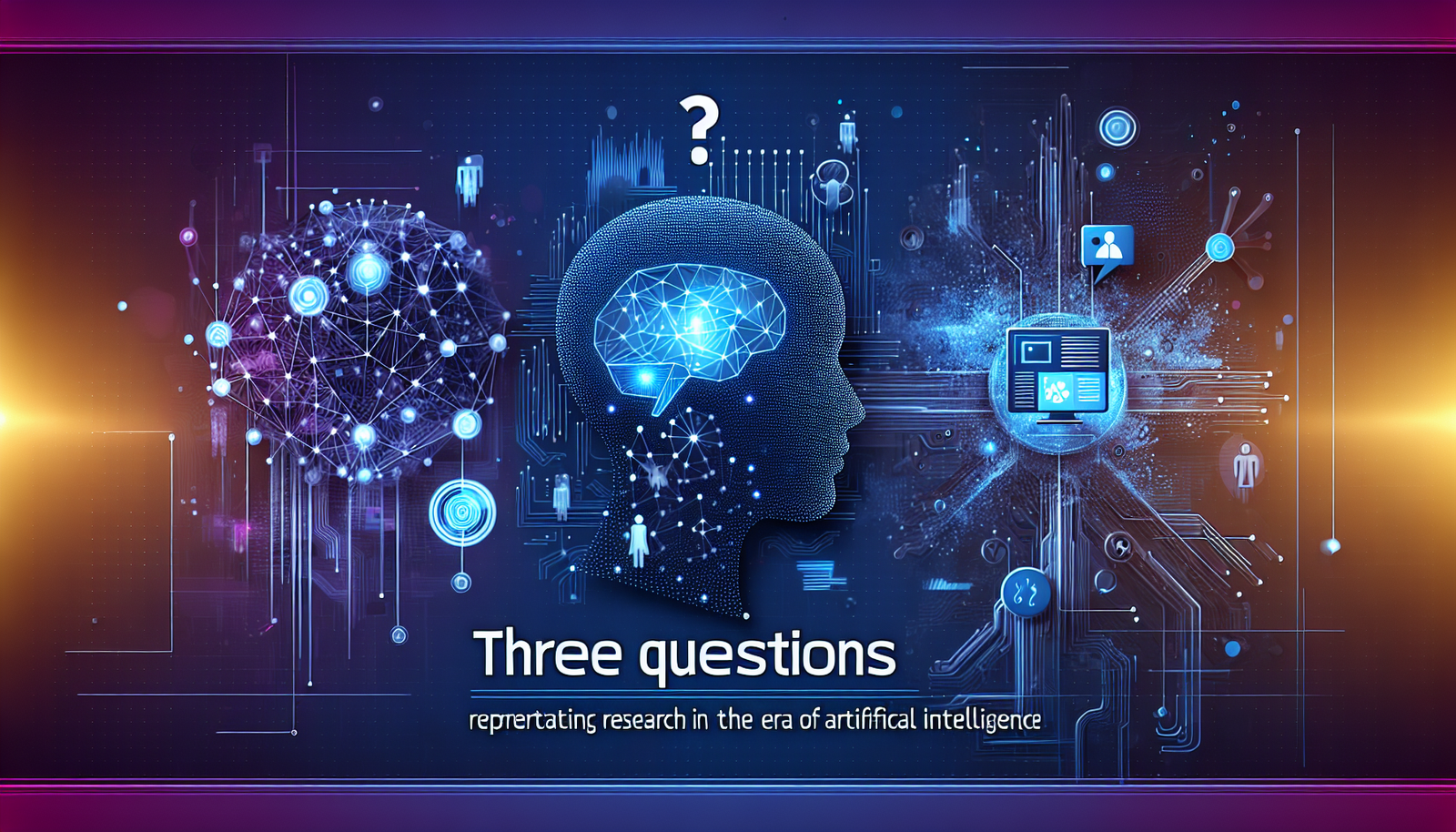The advent of artificial intelligence is radically revolutionizing scientific research, redefining the working methods of researchers. Challenges are multiplying, particularly in data protection and the fairness of algorithmic treatments. Ethical questions are also emerging, posing a need for reevaluation of scientific responsibilities in the digital age. How are researchers adapting to such a paradigm? What tools and approaches are they adopting to navigate this essential transition? The inquiry intensifies around the social and technological implications of this upheaval.
Reflection on the perspectives of scientific research
In the age of artificial intelligence, the transformation of the research landscape raises fundamental questions. The advancements allowed by generative AI are changing the way researchers approach scientific questions, particularly through the automation of time-consuming tasks. This new approach fosters a considerable time gain, thus allowing focus on more complex issues.
Ethics and responsibility in the use of technologies
The rise of artificial intelligence systems requires a deep ethical reflection in the field of research. Respect for privacy, protection of personal data, and algorithm transparency are major issues. Researchers must establish an ethical framework that regulates the use of these technologies to prevent potential abuses.
Algorithmic biases and discrimination
The biases embedded in algorithms raise important questions about the fairness of the results. Algorithms, often based on historical data, can reproduce or even amplify existing discriminations. The legal responsibility of scientists concerning the use of these tools thus becomes a prominent concern.
The impact on interdisciplinary collaboration
The introduction of AI in research also promotes interdisciplinary collaboration. Scientists can now combine their skills to develop ambitious projects. Collaborative platforms, powered by AI, enable the networking of various experts, stimulate innovation, and facilitate the exchange of ideas.
Responses to criticisms and upcoming challenges
Criticism of AI is growing, particularly concerning data manipulation and the risk of deception. As revealed by some studies, tests highlight flaws in the research tools currently used, thereby raising concerns about the reliability of results generated by systems such as ChatGPT. Solutions must be swiftly implemented to minimize these risks.
A scientific research at the service of humanity
Research must remain centered on the needs of humanity. Technological innovations must be articulated around one objective: to improve individual lives and solve societal problems. Emerging AI systems aim to transform not only academic sectors but also industries, healthcare, and education.
Intermediate conclusion
The challenges posed by the integration of AI in scientific research present an opportunity to rethink methods and improve outcomes. Scientists and technology creators must collaborate to establish ethically responsible practices. The balance between innovation and ethics must be constantly reevaluated to ensure research is beneficial for all.
Frequently asked questions about research in the age of artificial intelligence
What are the main challenges of scientific research in the age of artificial intelligence?
The main challenges include the speed of obtaining results, analyzing large quantities of data, as well as ethical issues related to privacy protection and fairness in information processing.
How is artificial intelligence transforming the methodology of scientific research?
It optimizes methodology by automating repetitive tasks, allowing researchers to focus on more complex analyses and critical reflections, thereby accelerating the discovery process.
What would be the ethical implications of using AI in research?
The ethical implications include concerns about algorithm transparency, the possibility of biases in the data used, as well as the consequences for the legal responsibility of the results produced by these systems.
How do we ensure the transparency of algorithms used in research?
Transparency can be ensured through regulatory standards, external audits, and clear communication about how algorithms function as well as criteria for data selection.
What is the responsibility of researchers regarding the results generated by AIs?
Researchers must take responsibility for the results obtained by ensuring that methodologies are based on robust ethical principles and considering possible biases.
What role does interdisciplinary collaboration play in AI-driven research?
Interdisciplinary collaboration is essential as it allows the integration of varied perspectives, exploring complex questions from multiple angles and enriching research methods.
Can the results generated by AI be considered reliable?
The reliability of results will depend on the quality of the data and the algorithmic models used. Rigorous validation is essential to ensure their scientific validity.
How does AI influence the funding of scientific research?
The funding landscape is changing with the rise of AI technologies, as more and more funds are directed toward projects using AI, fostering innovation in this field.
What skills are necessary for researchers in the age of AI?
Researchers must acquire skills in data analysis, programming, and AI ethics to navigate effectively through this new research landscape.
What future for scientific research in the age of artificial intelligence?
The future appears promising with the potential to accelerate discoveries, while requiring a strong ethical framework to guide the use of these technologies in research.






